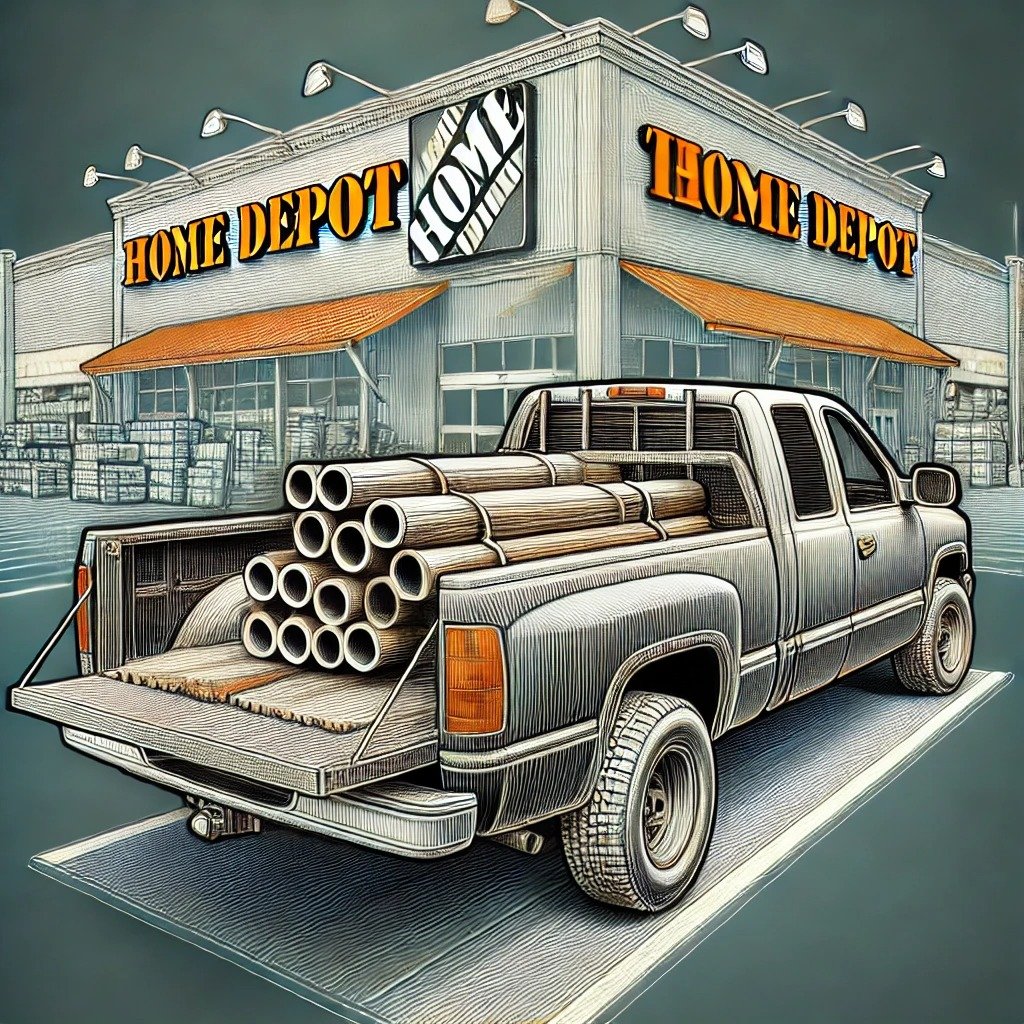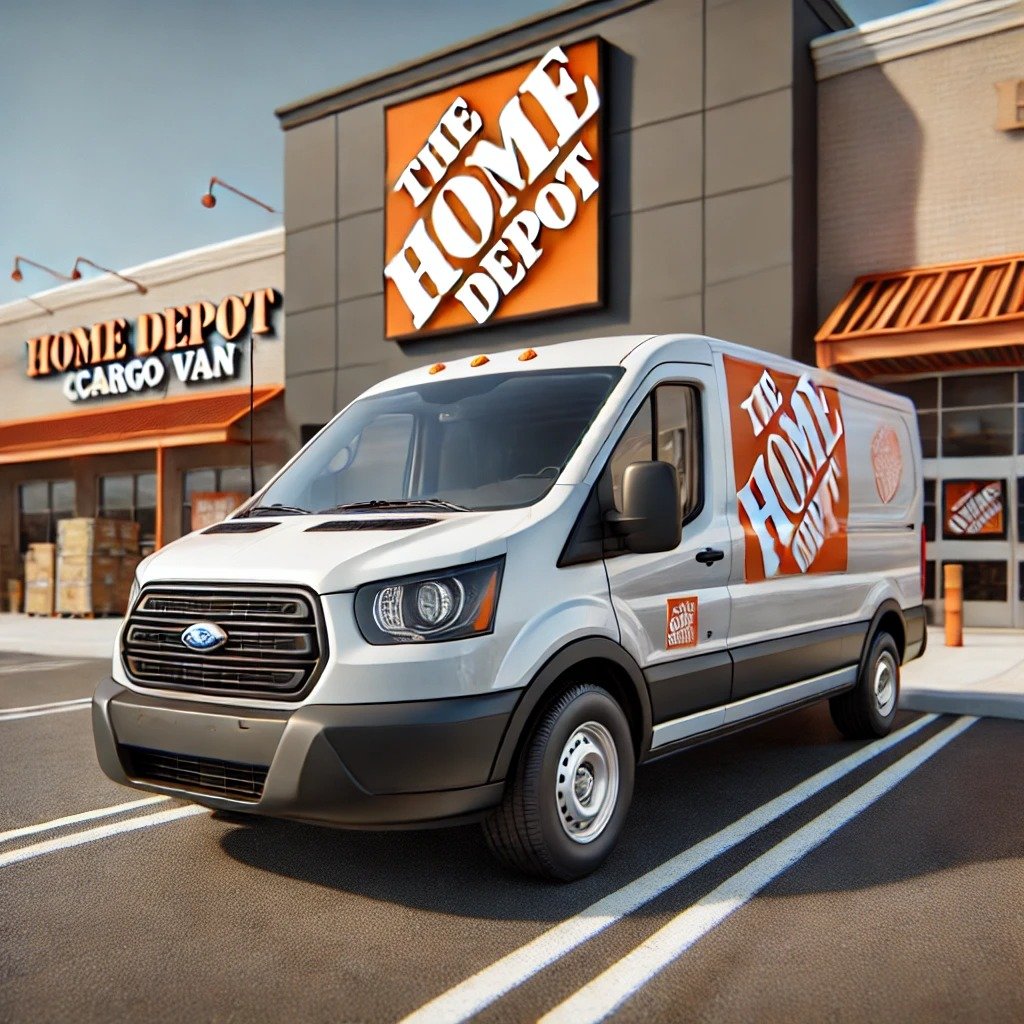Introduction to Home Depot Truck Rental
Table of Contents
ToggleTypes of Trucks Available at Home Depot
Home Depot understands that different tasks require different types of vehicles. That’s why they offer a range of trucks to cater to various needs. Customers can choose from a variety of vehicle options in home depot truck rental, including flatbed trucks, box trucks, and cargo vans. Here are the main types of trucks you can rent from Home Depot:
Flatbed Pickup Trucks
Flatbed pickup trucks are ideal for transporting large items that might not fit in a standard car or SUV. Home depot truck rental provides flexible rental periods, with hourly, daily, and weekly rates available. These trucks feature an open bed, making it easy to load and unload items like furniture, appliances, and building materials. Home Depot’s flatbed pickups are robust and can handle heavy loads, making them perfect for both personal and professional use.
Box Trucks
Box trucks are enclosed vehicles with a large cargo area, making them suitable for moving household items, office equipment, and other large loads. The Home depot truck rental process is straightforward, requiring only a valid driver’s license and proof of insurance. Home Depot offers box trucks in various sizes, typically ranging from 10-foot to 26-foot models. The enclosed design of box trucks provides added protection for your belongings, especially during inclement weather.
Cargo Vans
Cargo vans are smaller than box trucks but still offer ample space for transporting items. Home depot truck rental offers competitive pricing, making it an affordable option for those in need of a truck. These vans are a great option for smaller moves or transporting items that need to be protected from the elements. Home Depot’s cargo vans are easy to drive and maneuver, making them a popular choice for urban moves or tight spaces.
The Rental Process at Home Depot
Renting a truck from Home Depot is a straightforward process designed to be convenient and efficient. Here’s a step-by-step guide to renting a truck from Home Depot:
Reservation
The first step in renting a truck from Home Depot is to make a reservation. You can do this online, over the phone, or in person at your local Home Depot store. It’s recommended to make your reservation in advance, especially during peak moving seasons, to ensure the availability of the truck you need.
Documentation
When you arrive to pick up your rental truck, you’ll need to provide some documentation. This typically includes a valid driver’s license and proof of insurance. Home Depot may also require a credit card for the rental deposit and payment.
Inspection and Pickup
Before you drive off with your rental truck, a Home Depot associate will conduct an inspection of the vehicle with you. This inspection ensures that any existing damage is noted and that the truck is in good working condition. Once the inspection is complete, you’ll receive the keys and be ready to go.
Costs and Fees
Understanding the costs associated with Home Depot Truck Rental is crucial for budgeting your move or project. Here are the key components of the rental costs:
Rental Rates
Home Depot offers competitive rental rates that vary depending on the type of truck and the duration of the rental. Rates are typically calculated on an hourly, daily, or weekly basis. For example, a flatbed pickup truck might cost around $19 for the first 75 minutes and then a fixed rate for each additional 15 minutes. It’s important to check the specific rates for the truck you need.
Mileage Fees
In addition to the base rental rate, Home Depot charges a mileage fee for each mile driven. This fee varies but is usually around $0.79 per mile. Be sure to estimate your mileage in advance to get an accurate idea of the total cost.
Fuel Costs
Rental trucks from Home Depot come with a full tank of gas, and you are expected to return the truck with a full tank. If you don’t, Home Depot will charge a refueling fee, which is often higher than the price of gas at the pump. It’s more cost-effective to refuel the truck yourself before returning it.
Additional Fees
There may be additional fees for things like insurance, late returns, or cleaning. Optional insurance coverage is available to protect you from potential damages or accidents during the rental period. Be sure to read the rental agreement carefully to understand all possible charges.
Tips for a Smooth Rental Experience
To make the most of your Home Depot Truck Rental, consider the following tips:
Plan Ahead
Planning ahead can save you time, money, and stress. Make your reservation well in advance and have a clear idea of what you need to transport. This will help you choose the right type of truck and ensure availability.
Understand the Rental Agreement
Before signing the rental agreement, take the time to read and understand all terms and conditions. This includes the rental rates, mileage fees, fuel policy, and any additional charges. Knowing what to expect can prevent surprises when you return the truck.
Inspect the Truck
During the inspection process, thoroughly check the truck for any existing damage and ensure it’s in good working condition. Take note of any issues and have them documented by the Home Depot associate. This will protect you from being held responsible for pre-existing damage.
Drive Safely
Rental trucks can be larger and more challenging to drive than your personal vehicle. Take your time to familiarize yourself with the truck’s size and handling. Follow all traffic laws, and drive cautiously, especially when loading and unloading heavy items.
Return the Truck on Time
Returning the truck on time is crucial to avoid late fees. Plan your move or project schedule to allow ample time for loading, transporting, and unloading. Some customers have experienced delays or unavailability with Home depot truck rental, especially during peak moving seasons. If you anticipate needing more time, consider renting the truck for an additional day to avoid rushing.
Conclusion
Home Depot Truck Rental offers a convenient and cost-effective solution for transporting large items, moving, or tackling DIY projects. With a variety of trucks to choose from and a straightforward rental process, Home Depot makes it easy to find the right vehicle for your needs. Home depot truck rental can be expensive if you’re not careful with mileage and fuel costs. By understanding the types of trucks available, the rental process, associated costs, and tips for a smooth experience, you can make the most of your rental and ensure a successful move or project. Whether you’re a homeowner, contractor, or DIY enthusiast, Home Depot Truck Rental provides the tools and services to help you get the job done efficiently and affordably.
ALSO READ
